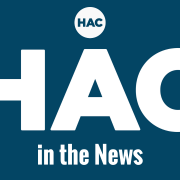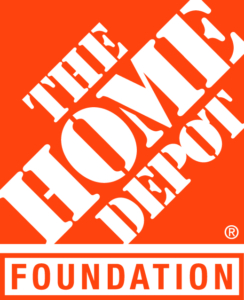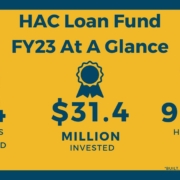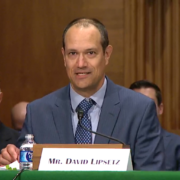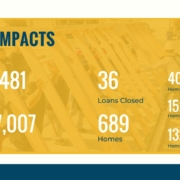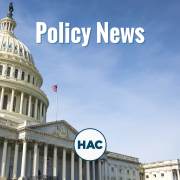Senate Bill Holds Line on Most USDA Housing Programs, But Unable to Restore Cuts to Section 502 and Self-Help
On July 11, 2024, the Senate Appropriations Committee approved a fiscal year 2025 funding bill that would keep many of USDA’s rural housing programs at their current funding levels. Where the bill does not adopt current levels, it largely follows the administration’s budget request. Section 502 direct loans are a notable exception: the Senate would raise this homeownership program to $1 billion from its FY24 level of $880 million, but even with the increase the program would remain substantially below its FY23 level of $1.25 billion. The administration’s budget request asked for a return to $1.25 billion. Self-help technical assistance is another exception, with a proposed level of $25 million rather than the $32 million that was appropriated in FY23 and requested in the budget.
— HAC’s analysis of FY25 appropriations for HUD programs is available here. —
Details on the Senate and House bills are provided in the table below.
The Senate bill would expand the current decoupling pilot, which allows Section 515 properties to continue receiving Section 521 Rental Assistance after the Section 515 mortgage is paid off. The Senate proposes to allow 5,000 units of decoupled RA rather than the current 1,000. The House bill would also continue the pilot, but would keep it at 1,000 units.
The funding levels proposed for two capacity-building programs, the Rural Community Development Initiative and rental preservation TA, are stated differently in the Senate bill and in the report that accompanies it. The table below shows the figures from the bill itself. For RCDI, the bill text shows a $5 million funding level, but the report shows only $1 million. For rental preservation, the bill provides $2 million but the report says $1 million.
While the House bill includes a provision blocking implementation of new energy efficiency standards for some USDA-financed homes, the Senate bill does not.
| Program ($ in millions) |
FY23 Final | FY24 Final | FY25 Budget | FY25 House,
H.R. 9027 |
FY25 Senate,
S. 4690 |
FY25 Final(a) | |
| 502 SF Direct Loans | $1,250 | $880 | $1,250 | $950 | $1,000 | ||
| Nat. Amer. SF Demo | 7.5 | 5 | 7.5 | 5 | 7.5 | ||
| 502 SF Guar. Loans | 30,000 | 25,000 | 30,000 | 25,000 | 25,000 | ||
| 504 VLI Repair Loans | 28 | 25 | 28 | 18 | 25 | ||
| 504 VLI Repair Grants | 32 | 25 | 30 | 12 | 30 | ||
| 515 MF Direct Loans | 70 | 60 | 70 | 48 | 65 | ||
| 514 Farm Labor Hsg. Loans | 20 | 15 | 25 | 12.5 | 25 | ||
| 516 Farm Labor Hsg. Grants | 10 | 7.5 | 10 | 0 | 7.5 | ||
| 521 Rental Asst. | 1,488 | 1,608 | 1,690 | 1,684 | 1,691 | ||
| 523 Self-Help TA | 32 | 25 | 32 | 20 | 25 | ||
| 533 Hsg. Prsrv. Grants | 16 | 10 | 16 | 8 | 10 | ||
| 538 MF Guar. Loans | 400 | 400 | 400 | 400 | 400 | ||
| 542 Vouchers | 48 | 48 | 38(b) | 54 | 50.4 | ||
| Rental Prsrv. Demo (MPR) | 36 | 34 | 90 | 28 | 36 | ||
| Rental Prsrv. TA | 2 | 1 | 0 | 0 | 2(d) | ||
| Rural Cmty. Dev’t Init. | 6 | 5 | 6 | 4 | 5(e) | ||
| Cmty. Facil. Direct Loans | 2,800 | 2,800 | 1,250 | 1,000 | $1,250 | ||
| Cmty. Facil. Grants | 25 | 5 | 22 | (c) | 5 | ||
| Tribal Colleges CF Grants | 10 | 8 | 10 | 6 | 8 | ||
| Energy Cmties. Grants | – | – | 10 | – | – | ||
| Cmty. Facil. Guar. | 650 | 650 | 650 | 650 | 650 |
Abbreviations key
- MF: Multfamily (Rental)
- SF: Single-Family (Homeownership)
- TA: Technical Assistance
- VLI: Very Low-Income
(a) This column will be filled in as the FY25 funding process progresses.
(b) This $38 million is to renew vouchers already issued. Most tenants in USDA-financed rental properties where mortgages end or are paid off would receive Section 521 Rental Assistance under the Administration’s decoupling proposal. An additional $20 million is included in the HUD tenant protection vouchers account to provide new vouchers for tenants “in USDA properties that are unable to refinance, participate in the multi-family preservation and rehabilitation options, or decouple.”
(c) The amount proposed for non-earmarked Community Facilities grants in the House bill remains unclear after release of the committee’s report. It shows a grant level of $472 million, which includes Congressionally Directed Spending (earmarks).
(d) The Senate bill’s text shows $2 million for rental preservation TA, but the report accompanying the bill shows $1 million.
(e) The Senate bill’s text shows $5 million for RCDI, but the report accompanying the bill shows $1 million.
House Bill Proposes Cuts to Smaller Rural Housing Programs
UPDATE July 11, 2024 – On July 10 the full House Appropriations Committee approved its Agriculture appropriations bill for FY25. The full Senate Appropriations Committee has approved a bill as well, but has not yet released the full text. The Senate committee’s summary of its bill provides numbers for two of the rural housing programs: it says the bill includes $1 billion for Section 502 direct and $1.691 billion for Section 521 Rental Assistance.
On July 10, 2024, the full House Appropriations Committee is marking up appropriations bills for USDA, Transportation-HUD, and Labor. The committee has released its reports on these bills, which provide additional details that were not available at the subcommittee level.
The committee’s report on the USDA funding bill makes clear that, while the committee supports the larger rural housing programs such as Section 502 direct and guaranteed homeownership loans, Section 521 Rental Assistance, and tenant vouchers, it proposes cuts in the smaller programs, all of which are important to lower income rural residents.
In addition to the cuts in self-help, home repair, and rental housing noted below, the bill proposes no funding for Section 516 farm labor housing grants, which received $7.5 million this year. It would reduce Section 514 farm labor loans from $15 million in FY24 to $12.5 million in FY25. Section 514 loans were at $20 million in FY23.
The report also makes clear the scope of the proposed reductions in the Section 504 repair grants program, from $25 million in FY24 to $12 million in FY25, and the Section 533 Housing Preservation Grants program, from $10 million this year to $8 million next year. The FY24 levels for both of those programs were lower than their FY23 appropriations.
House Bill Proposes Rural Housing Cuts, Though Not for Purchase Mortgages or Rental Vouchers
June 11, 2024 — The House Appropriations Subcommittee released its fiscal year 2025 funding proposal for USDA on June 10, 2024, and will hold a markup at 6:00 pm Eastern time on June 11. As expected, the bill would fund most USDA housing programs at levels lower than those enacted for FY24 or proposed in the administration’s FY25 budget.
The House measure would increase Section 502 direct loans to $950 million, higher than the $880 million level for FY24 but not at the $1.25 billion provided in FY23 or requested in the FY25 budget. It would keep the Section 502 guaranteed loan program at $25 billion and Section 538 guaranteed multifamily loans at $400 million.
The bill appears to provide no funding at all for Section 516 farmworker housing grants, which are used by nonprofit developers alongside Section 514 loans.
Homeownership Housing
Despite its support for home purchase programs, the House bill would reduce funding for self-help housing, Section 504 home repair loans and grants, and Section 533 Housing Preservation Grants.
Rental Housing
The bill proposes cuts in rental preservation programs, reducing Section 515 loans from $60 million in FY24 to $48 million and the Multifamily Preservation and Revitalization (MPR) program from its current $34 million to $28 million. It shows some support for tenants, however, with Section 521 Rental Assistance funding almost at the level requested by the administration’s budget, an increase in Section 542 vouchers, and continuation of the 1,000-unit demonstration program that decouples Rental Assistance from USDA mortgages reaching the end of their terms.
Energy Efficiency
The House bill would prohibit use of any USDA housing funds to implement a recent determination made jointly by HUD and USDA that would require some federally supported new housing construction, including single-family homes supported by USDA’s Section 502 direct, Section 502 guaranteed, or Section 523 self-help programs, to meet updated energy efficiency standards. The ban, tucked into Section 743 in the bill’s “general provisions,” is reminiscent of an amendment defeated in the Senate in October 2023. That proposed amendment would have prevented HUD implementation of the same energy efficiency standards.
Community Facilities
The bill would cut funding for Community Facilities direct loans by two-thirds, from $2.8 billion in FY24 to $1 billion in FY25.
Administration Proposes Small Increases in Many Rural Housing Programs
The Biden Administration’s budget for fiscal year 2025, released on March 11, 2024, would hold funding at FY23 levels for most of USDA’s rural housing programs. In effect, it would restore the cuts made in the final FY24 appropriations bill, which was passed after the budget was prepared. Details are provided in the table below.
The recording and slides from HAC’s March 13 webinar on Rural Housing in the Fiscal Year 2025 White House Budget are posted here.
Homeownership Housing7
Like last year’s budget proposal, this year’s would eliminate subsidy “recapture” for the Section 502 direct program. Recapture requires that, when a low- or very low-income homeowner with a Section 502 direct loan sells the house or moves, they must repay the subsidy amounts they have received over the life of the loan. The administration estimates that eliminating this penalty for current borrowers would cost USDA $1.12 billion. It also proposes that Section 502 direct loans made in 2025 will not to be subject to recapture.
The budget would require that funding for housing construction or rehabilitation be targeted to projects that improve energy or water efficiency, implement green features, including clean energy generation or building electrification, electric car charging station installations, or address climate resilience of properties.
The budget also proposes three changes that were just adopted in the final FY24 funding bill, which had not been passed yet when the budget was prepared. These include extending the length of self-help and site-development loans from two years to five, and standardizing foreclosure procedures consistent with HUD’s.
Rental Housing
The administration again asks for legislative language to “decouple” Section 521 Rental Assistance from Section 515 and 514 mortgages, so that when a USDA rental housing mortgage ends for any reason, the tenants can continue to receive Rental Assistance. The final FY24 bill authorized a limited pilot to decouple up to 1,000 units of RA, but the budget does not propose any limits.
The budget requests Section 542 voucher funding be used only to renew “legacy vouchers,” $11.79 million in unobligated voucher funds be rescinded, and $20 million be added to provide HUD tenant protection vouchers for tenants “in USDA properties that are unable to refinance, participate in the multi-family preservation and rehabilitation options, or decouple.”


